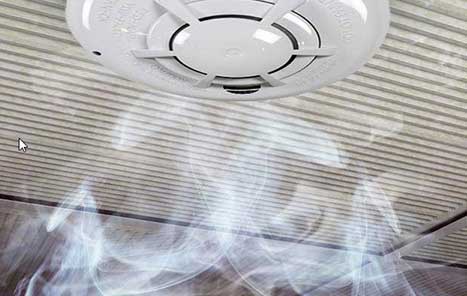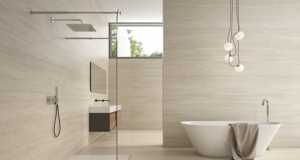

The safety of your family and property should always be a top priority. One of the most effective ways to ensure that your home is safe from fire hazards is by having smoke alarms installed. Smoke alarms are an essential component of any home’s safety system and can help protect you and your loved ones from the dangers of smoke inhalation and fire-related injuries. In this comprehensive guide, we will explore the importance of smoke alarms, how they work, and the different types available in the market. We will also discuss the best practices for smoke alarm installation, maintenance, and testing to ensure that they are functioning correctly. By the end of this guide, you will have a better understanding of why smoke alarms are essential for every home and how to keep your family safe from fire hazards. So, let’s get started!
Importance of Smoke Alarms
Smoke alarms are essential in every home. They are designed to detect the presence of smoke in the air and alert the occupants of a potential fire hazard. Smoke alarms are the first line of defense against fires, and they can provide valuable time for occupants to evacuate the premises safely. Fires can start anywhere, at any time, and they can quickly spread, engulfing a home in flames. Smoke is the leading cause of death in fires, and it can make it difficult for occupants to escape. Smoke inhalation can cause serious health problems, including respiratory issues, and it can be fatal in some cases. Smoke alarms can detect smoke early, giving occupants enough time to respond and evacuate the premises. Smoke alarms are, therefore, essential in every home.
It is important to note that smoke alarms are not just for homeowners. Renters, too, should ensure that their homes have smoke alarms installed. Landlords are required to provide smoke alarms in their rental properties, and tenants should ensure that they are functioning correctly. Smoke alarms are also essential in vacation homes, RVs, and boats. They can help prevent fires and ensure the safety of occupants, whether they are at home or away.
How Smoke Alarms Work
Smoke alarms are designed to detect smoke in the air. They contain a sensor that is triggered when smoke particles enter the chamber. The sensor then sends a signal to the alarm, which sounds an alert. Smoke alarms can be battery-powered, hardwired, or a combination of both. Battery-powered smoke alarms are easy to install and can be placed anywhere, while hardwired smoke alarms are connected to the home’s electrical system and are powered by electricity. Combination smoke alarms can detect both smoke and carbon monoxide, providing an extra layer of protection for occupants. Smoke alarms can also be interconnected, meaning that when one alarm sounds, all the alarms in the home will sound.
Smoke alarms are designed to detect different types of smoke, including smoldering smoke and flaming smoke. Smoldering smoke is produced when a fire is burning slowly and can be detected by ionization smoke alarms. Flaming smoke is produced when a fire is burning quickly and can be detected by photoelectric smoke alarms. Dual-sensor smoke alarms can detect both types of smoke and are, therefore, more effective in detecting fires.
Types of Smoke Alarms
There are different types of smoke alarms available in the market, each with its unique features and advantages. The most common types of smoke alarms are ionization smoke alarms, photoelectric smoke alarms, and dual-sensor smoke alarms.
Ionization smoke alarms are designed to detect smoldering fires. They contain a small amount of radioactive material that ionizes the air inside the sensing chamber. When smoke enters the chamber, it disrupts the ionization process, triggering the alarm. Ionization smoke alarms are more sensitive to flaming fires and are, therefore, more prone to false alarms.
Photoelectric smoke alarms are designed to detect flaming fires. They contain a light source and a light sensor. When smoke enters the chamber, it scatters the light, triggering the alarm. Photoelectric smoke alarms are less sensitive to cooking smoke and are, therefore, less prone to false alarms.
Dual-sensor smoke alarms combine both ionization and photoelectric sensors, making them more effective in detecting fires. They are, however, more expensive than single-sensor smoke alarms.
Placement of Smoke Alarms
Smoke alarms should be installed on every level of the home, including the basement and attic. They should also be installed in every bedroom and outside sleeping areas. Smoke alarms should be installed at least 10 feet away from cooking appliances to prevent false alarms. They should also be installed away from doors and windows, as drafts can prevent smoke from entering the sensing chamber. Smoke alarms should be installed on the ceiling or high on the wall, as smoke rises. If the smoke alarm is installed on the wall, it should be installed 4 to 12 inches from the ceiling.
Maintenance of Smoke Alarms
Smoke alarms should be tested at least once a month to ensure that they are functioning correctly. Testing smoke alarms is easy and can be done by pressing the test button on the alarm. Smoke alarms should also be cleaned regularly to prevent dust and debris from entering the sensing chamber. Smoke alarms should be replaced every 10 years, or as recommended by the manufacturer. Batteries in smoke alarms should be replaced every 6 to 12 months, or as recommended by the manufacturer. Smoke alarms that are hardwired should be replaced by a qualified electrician.
Smoke Alarm Regulations and Laws
Smoke alarm regulations and laws vary by state and municipality. In general, however, smoke alarms are required in all residential buildings, including single-family homes, apartments, and condominiums. Landlords are required to provide smoke alarms in their rental properties, and tenants are required to maintain them. Failure to comply with smoke alarm regulations and laws can result in fines and legal action.
Choosing the Right Smoke Alarm for Your Home
Choosing the right smoke alarm for your home can be challenging, given the different types and models available in the market. When choosing a smoke alarm, consider the size of your home, the number of levels, and the number of bedrooms. Also, consider the type of smoke alarm that is best suited for your home. If you have a large home, a hardwired smoke alarm system may be the best option. If you have a small home, a battery-powered smoke alarm may be sufficient. Also, consider the features of the smoke alarm, including interconnectivity, battery life, and warranty.
Common Misconceptions About Smoke Alarms
There are several misconceptions about smoke alarms that can be dangerous. One common misconception is that smoke alarms can detect carbon monoxide. Smoke alarms are designed to detect smoke, not carbon monoxide. If you have a fuel-burning appliance, such as a gas stove or furnace, it is essential to have a carbon monoxide detector installed. Another misconception is that smoke alarms can last forever. Smoke alarms have a lifespan of 10 years and should be replaced after this period. Finally, some people believe that smoke alarms are expensive and difficult to install. Smoke alarms are affordable and easy to install. Battery-powered smoke alarms can be installed in minutes, and hardwired smoke alarms can be installed by a qualified electrician.
Conclusion
Smoke alarms are essential in every home. They are designed to detect smoke in the air and alert occupants of a potential fire hazard. Smoke alarms can provide valuable time for occupants to evacuate the premises safely and can help prevent smoke inhalation and fire-related injuries. In this comprehensive guide, we have explored the importance of smoke alarms, how they work, and the different types available in the market. We have also discussed the best practices for smoke alarm installation, maintenance, and testing to ensure that they are functioning correctly. By following these best practices, you can keep your family safe from fire hazards and ensure that your home is protected.


